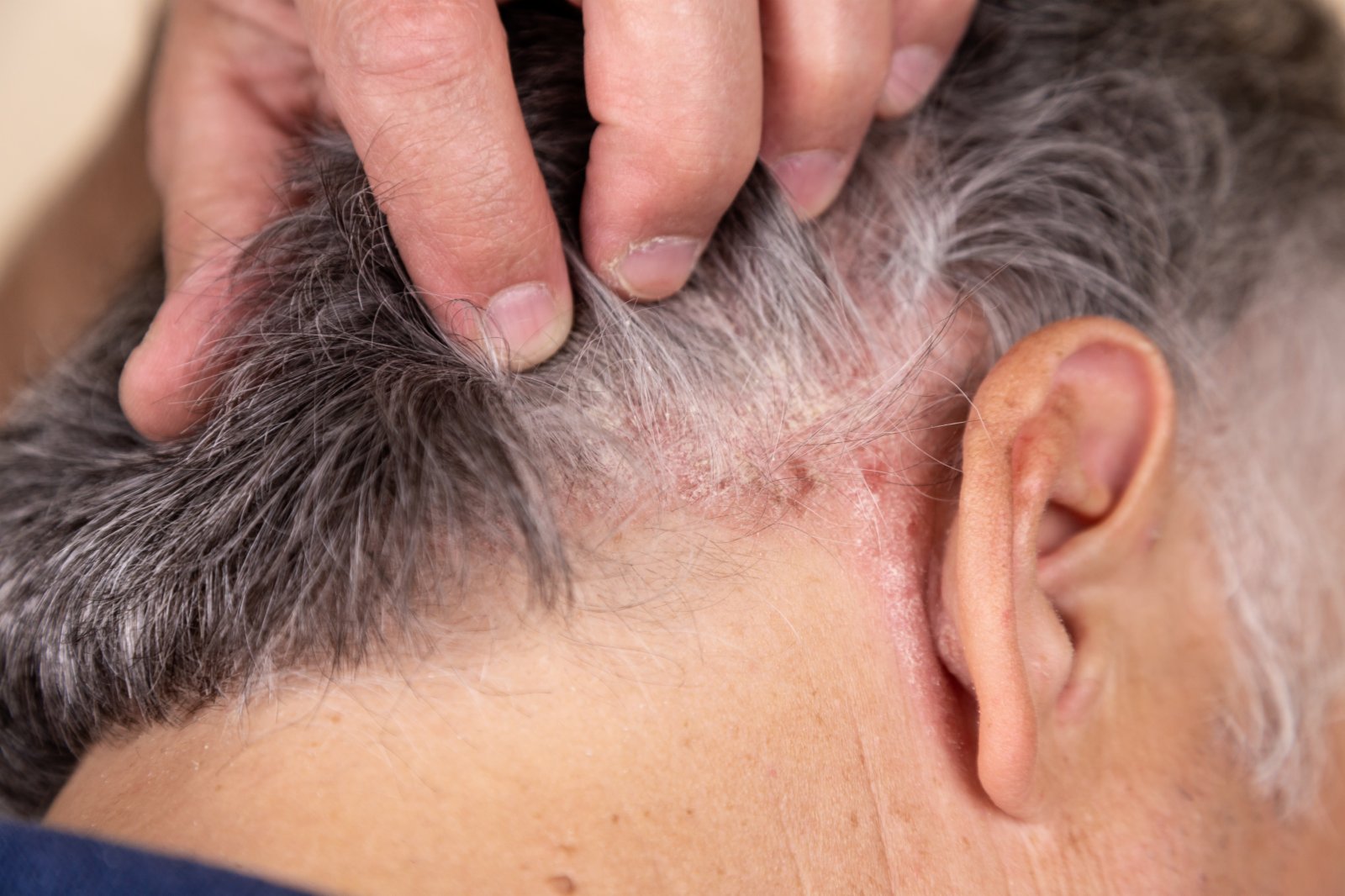It is impossible to contract scalp psoriasis from another person. Doctors believe it is caused by a problem with your immune system, which causes skin cells to grow too quickly and form patches. If you have a family history of scalp psoriasis, you are more likely to develop it.
Scalp psoriasis can be mild and virtually undetectable in certain cases. However, it can be severe, last for a long time, and cause thick, crusted sores. Itching can disrupt your sleep and daily life, and scratching excessively can lead to skin infections and hair loss. Hence, medical professionals suggest seeking consultation to address and minimize any possible discomfort that this condition brings.
Scalp Psoriasis causes
Psoriasis is presumed to be an immune system issue that causes the skin to regenerate at a faster rate than normal. This large influx of cells results in scales and red patches in the most common type of psoriasis, known as plaque psoriasis.
It’s unclear what reasons there are for the immune system to malfunction. Genetics and environmental factors, according to researchers, both play a role. The illness is not contagious.
What can trigger Scalp Psoriasis?
Many people who are predisposed to psoriasis may be symptom-free for years before the disease is triggered by an environmental factor. The following are some common psoriasis triggers:
- Infections like strep throat and skin infections.
- Weather, particularly cold and dry conditions.
- Excessive alcohol consumption.
- Skin injury, such as a cut or scrape, a bug bite, or severe sunburn.
- Stress smoking and secondhand smoke exposure.
- Rapid discontinuation of oral or systemic corticosteroids.
- Contraindications such as certain medications, such as lithium, blood pressure medications, and antimalarial drugs.
Risk factors of Scalp Psoriasis
Psoriasis can affect anyone. Approximately one-third of cases begin in childhood. The following factors may increase your chances of developing this condition:
- History of the family: The disease runs in families. Having one parent with psoriasis raises your chances of getting the disease, and having two parents with psoriasis raises your chances even more.
- Smoking: Tobacco use not only increases your risk of psoriasis, but it may also worsen the disease’s severity. Smoking may also play a role in the disease’s early development.
- Stress: High-stress levels may increase your risk of psoriasis because stress can affect your immune system.
Scalp Psoriasis symptoms
Mild scalp psoriasis symptoms may include only minor, fine scaling. Moderate to severe scalp psoriasis symptoms include:
- Patches of scaliness, redness, and bumpiness
- Hair thinning
- Silvery/white scales
- Soreness or burning
- Scalp dehydration
- Itching
- Flaking resembling dandruff
Scalp psoriasis does not cause hair loss in and of itself, but scratching excessively or very hard, picking at the scaly spots, harsh treatments, and the stress associated with the condition can all result in temporary hair loss. Fortunately, your hair usually regrows after your skin heals, but healing also requires attention.
When should you see a doctor?
Consult your doctor if you suspect you have psoriasis. Also, consult your doctor if you have psoriasis:
- When it becomes severe or widespread.
- You are in pain and discomfort as a result of this.
- Concerns you about the appearance of your skin.
- This causes joint problems such as pain, swelling, and the inability to perform daily tasks.
- Treatment has had no effect.
Scalp Psoriasis treatments
1)Topical treatments
The first line of defense is skin-care products such as medicated shampoos, creams, gels, lotions, foams, oils, ointments, and soaps. Some of these products are available over the counter, but others require a prescription. These treatments must be applied to your scalp, not just your hair, to be effective. Follow the instructions exactly until your skin heals, which can take up to 8 weeks.









